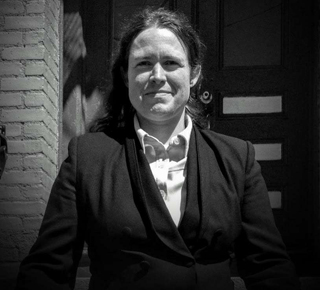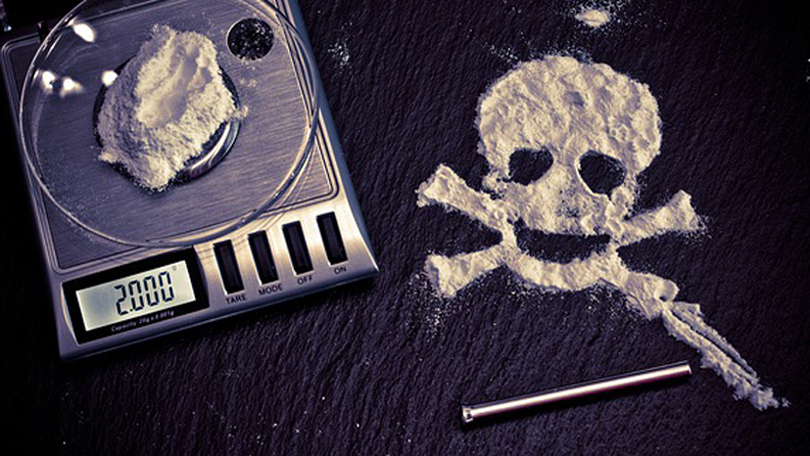What should we do with cocaine-addicted mothers?
In light of growing attention to the nation’s opiate-addiction crisis, there is a renewed trend to penalize mothers who give birth to drug or alcohol-exposed babies. We want to help babies so we must ban bad behavior, but I think the ultimate cause is that it’s really easy to hate bad mothers.
Life is not easy for a baby born addicted to drugs. Any of us who remember the “crack babies” of the ’80s recalls the images of minuscule hands, convulsing bodies, and ear-piercing screams. I used to work with foster mothers who specialized in fostering drug-addicted infants. The stories I heard were truly horrifying.
States investigated different ways of penalizing mothers of chemically exposed and addicted babies. The two genres of punishment were through corrections (arresting and imprisoning the mothers) or through Social Services (removing the baby from the mother’s custody and placing them with a relative or into foster care).
Both approaches result in a very delicate, hard-to-care-for infant being handed to someone else to raise. Foster care is expensive, and statistically, the outcomes for foster children are atrocious; they are likely to suffer abuse within foster care, and live adult lives full of mental illness, prostitution and crime.
Researchers decided to study exactly how bad being born to a drug-addicted mother was. The results were interesting. Over time, on average, babies born to cocaine-addicted mothers had no more learning or health problems than babies in the same socioeconomic demographics. They had problems, but in general, they weren’t unique problems, and they were problems strongly associated with poverty and negative parenting. Babies born to mothers who smoked cigarettes had more long-term health problems than babies born to cocaine-addicted mothers. Babies born to mothers experiencing high-stress levels, high blood pressure and who were born preterm and or at low birth weight had similarly serious problems.
Luckily, we can prevent many of these factors. Much of it involves ensuring mothers have access to prenatal care and protection from abusive partners. Maternal home visiting programs work with pregnant women and help them access prenatal care, and quit tobacco and hard drugs. But women won’t utilize prenatal care or drug rehabilitation if they fear either arrest or removal of their children.
Laws and policies that favored the removal of babies from their mothers quietly lost momentum. When the Keeping Children and Family Safe Act passed, it mandated that the mother of a baby born chemically addicted had to work with the local Department of Social Services. The mother’s addiction wasn’t being ignored, nor was it being criminalized.
At baby showers, women proudly talk about what they sacrificed while pregnant; alcohol, coffee, flights to exotic locales, countless freedoms, and liberties with their bodies. When they find themselves the mother of a two-year-old having tantrums in a crowded shopping mall, the payout seems meager.
I was planning on starting heavy-duty drug use before I learned I was pregnant. I put it off until after the first baby was born, and then, between diapers, the minivan payment, and baby #2, I just can’t afford it these days.
I’ve never been to a baby shower and heard a mother remark “I was planning on starting heavy-duty drug use before I learned I was pregnant. I put it off until after the first baby was born, and then, between diapers, the minivan payment, and baby #2, I just can’t afford it these days.”
Addiction is not a decision made capriciously, nor from a place of health. Drug addiction is much more common among people who have an ACE score of four or higher; intravenous drug use is rare among people with low ACE scores.
Avoiding hard-core drugs is not a sacrifice most pregnant women ever consider, it’s still easy to resent those who don’t make it. It’s very satisfying to hate these “bad” mothers. And since every mother out there worries about being a bad one, it’s also satisfying to have a clear mental picture of one’s much, much worse.
When hate becomes visible in someone as they defend a bill, it’s usually a bad bill. And this is something I always see with this genre of legislation. Any legislation that favors removing children from their parents over moving their parents past their obstacles essentially favors throwing the baby out with the bathwater. As satisfying as it may feel, it’s not in anyone’s best interest.
Parents who relish the idea of children being removed from “bad” parents should keep this in mind; if a parent doesn’t bond properly with their child, raising that child is its own punishment. Failure to bond is at the heart of most neglect and non-sexual abuse.
The thousands of tender moments that melt hearts and sustain a parent who has bonded properly with their child won’t sustain one who hasn’t. The parent simply cannot experience that connection.
Children who are abused and neglected generally show behavior problems and learning delays early on. So they’re harder to parent, and there are fewer glowing report cards to brag about. Children who experience abuse and neglect generally earn less money and reach financial independence later in life than those who don’t, which means they are a greater financial liability to their parents. And a parent who can’t have a good relationship with their child while that child is young is less likely to have a good relationship with that child when that child is an adult.
Abusive parents don’t game the system; they lose in every round.
We shouldn’t be complacent about babies born exposed to drugs. Nor should we be complacent about children experiencing non-sexual abuse (we know how to prevent about 90% of it), sexual abuse (we only arrest between 3-10% of those who commit the crime), nor parents who batter their partner in front of their children (90% of the time, these are the parents who get custody in a divorce). We should pass laws that give babies what they need to grow into successful adults, not laws that make us feel better and accomplish nothing.
Maternal Home Visiting Programs produce fantastic results without arresting anyone. I can’t help but wonder if that isn’t why they’re so scarce. These programs protect children against most ACEs, which in turn decrease their odds of mental illness, cigarette smoking, and drug addiction. All the things that predispose them to high-risk pregnancies or to being abusive or neglectful parents as they reach adulthood.
The irony in the resurgence of bills penalizing drug-addicted mothers is that twenty years ago, we had the tools to make this problem better. We didn’t use them. Now, those damaged children have grown up and have created another damaged generation. And we seem just as committed to not fixing the problem.
Do you know your score?
Discover your ACE score and unlock a new understanding of your life. Take the test and gain insights into how your early experiences shape your well-being. Don't let your past define you – empower yourself with knowledge.

Melanie Blow
Executive Director, Stop Abuse Campaign
A survivor of incest, psychological abuse and a host of other childhood trauma, Melanie now uses her talents to prevent Adverse Childhood Experiences. Melanie has over a decade of legislative advocacy regarding children’s issues, and she has been published in newspapers, magazines and blogs all across the country.
Melanie has an ACE score of 6.
